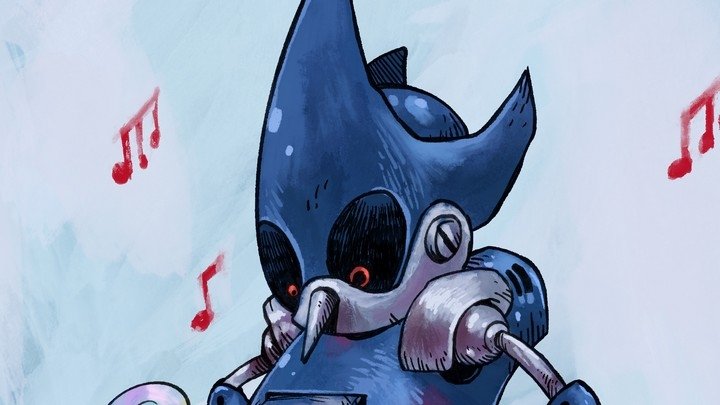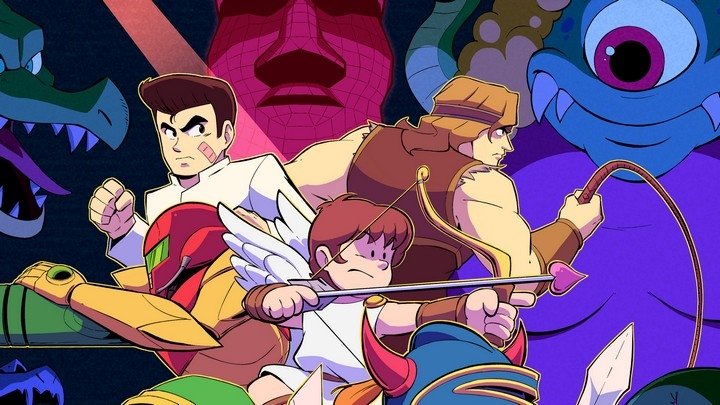Ten years later, Resident Evil 5 remains a middle-child blockbuster
"I bless the pain down in Africa~"
As of this writing in 2019, Resident Evil is hotter than ever. A big-budget complete remake of Resident Evil 2 came out this year to rave reviews, and in a few months ports of three older Resident Evil games will be coming to the Nintendo Switch. It's clear that Capcom's signature survival horror franchise is, as it has nearly always been, a critical and commercial darling.
So what better time is there than today, on its 10th anniversary, to reflect on the legacy of a troubled chapter in the franchise: Resident Evil 5.
To set the stage (lest anyone forget), in 2005 Resident Evil 4 was a wildly popular entry that ditched many of the series' conventions only to become the template for the modern third-person action game. The game still had its share of scares but the days of struggling with tank controls while carefully dodging enemies to preserve scarce ammunition were long gone; instead, Leon S. Kennedy fought his way through hordes of not-quite-zombies with the camera firmly placed over his shoulder and a briefcase full of bullets and grenades. Resident Evil 4 is so beloved that today, a decade and a half later, the PlayStation 4/Xbox One port is itself a million-seller (and yes, as mentioned earlier, it's coming to Switch in May).
Resident Evil 5, which debuted in Japan on March 5, 2009, was an attempt to one-up the success of Resident Evil 4 by turning everything up to 11. The graphics were now HD, there were multiple control options, and the helpless Ashley had been replaced by a fully-capable, fully-playable partner - yes, the game now included full co-op and online play. The plot even tied back into the original series by bringing back Chris Redfield, Jill Valentine, and Albert Wesker.
Everything about Resident Evil 5 should have been a slam dunk. Instead, it became more of a lay-up, a success that no one was thrilled by. And a big reason why was the long shadow of its predecessor.
Resident Evil 4 changed so much about the franchise and influenced so many subsequent games that Resident Evil 5's "again, but bigger" approach didn't impress critics or audiences as much. By 2009, there were plenty of other third-person action games to choose from, all of them with their own spin on the Resident Evil 4 formula. By straying from its survival horror roots, Resident Evil 5 invited comparisons to a wider field of competitors, and those comparisons were not always favorable. For example, Resident Evil 5 stuck to the tradition of immobilizing players during combat: run or gun, but never both at the same time. If Gears of War lets players sprint from cover to cover while spraying a machine gun, those same players are going to grimace at the Resident Evil stop-and-shoot approach.
There's also the fact that Resident Evil 5's streamlined elements removed a lot of the personality of its older brother. The merchant character was gone, replaced by a faceless menu system for buying and selling equipment between stages. Treasures and money were still hidden throughout the game, but there was no longer an incentive to combine items for greater resale value. The briefcase system for managing inventory was replaced by a nine-slot grid where all items were equal in their encumbrance whether they were a rocket launcher or a rotten egg.
If we are to look back at Resident Evil 5 there's one more issue that must be addressed: racism. Resident Evil 1-4 took place in American and European locations where most of the playable characters and enemies were white. Resident Evil 5 changed things dramatically by moving the action to a fictional African nation (quick aside: this alone was a controversial move, as most of the game would take place in well-lit sunny locales, signalling another major change of pace). Beginning with the earliest previews, there were questions being asked by the video game press about the use of racist stereotypes and imagery in the game as Chris Redfield - a well-armed, well-financed, absolute hulk of a white man, was shown fighting hordes of slim, impoverished African men and women, many wielding simple tools and handmade weapons. The final game included an entire level where the enemies wear grass skirts and fight with shields and spears.
While it's extremely unlikely that Capcom set out to create a racist video game, intent is not a necessary ingredient in hurting people's feelings. There were certainly voices who disagreed with the assertion that Resident Evil 5 is racist, however, and I am in no position to serve as arbiter of that conversation. But the conversation was held, out loud, in magazines and blogs at the time, which was a significant change from the usual fawning press coverage that most blockbuster video games received in years past.
Speaking personally, Resident Evil 5 just happened to come out months before I became a parent, so I had the time (and a willing coop partner who lived in the same time zone) to beat the entire game many times over. The complaints about Resident Evil 5 not living up to 4 didn't register for me for I had not, and indeed still have not, played Resident Evil 4 (or Gears of War, for that matter). To me, Resident Evil 5 was just a two-player roller coaster ride where each subsequent playthrough gave me more tools to work with and more strategies to kill the zombies in interesting ways. I didn't mind the stop-and-shoot restriction because the meat of the game wasn't shooting the monsters, it was stunning them so you could run up close and perform honest-to-god pro-wrestling moves on the monsters.
(Resident Evil 5 was also the first in the series to add new chapters as DLC, two very different scenarios that took the action back to the Spencer Mansion and also offered a non-stop gauntlet of enemies to fight - each with a different mix of protagonists than the main game. I devoured them both.)
Whatever its "mixed" reputation, Resident Evil 5 was an immediate success, quickly moving millions of copies on its way to becoming the highest-selling game in Capcom's history (at present, it's sunk to second place). In the decade since its release, Resident Evil as a franchise has swung both towards rollicking-rampage-style (Resident Evil 6) and back towards the haunted-house-style (Resident Evil VII). Since all of these games were tremendously popular, where does Resident Evil go next?
Anywhere it wants to, apparently.




